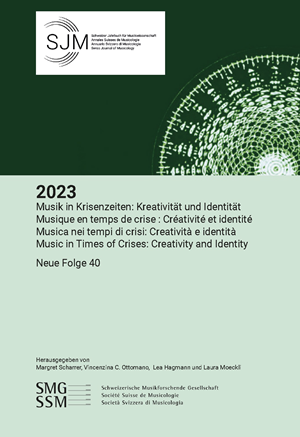Die Welt in einem neuen Licht sehen – Gustav Mahlers Spätwerk als Symptom einer persönlichen Krise?
DOI:
https://doi.org/10.36950/sjm.40.3Schlagwörter:
Gustav Mahler, Spätwerk, Rertrospection, HistoriographyAbstract
The late work of Gustav Mahler is often interpreted in connection with the composer’s crisis of 1907, when he lost both his daughter Maria Anna and his job as the director of the Vienna Court Opera, and furthermore was diagnosed with a heart failure. Although some stylistic changes affecting Das Lied von der Erde, as well as the ninth and tenth symphonies may seem obvious when compared to his compositions before 1907, it remains quite complicated to describe these late works as symptoms of this time of crisis leading to the composer’s death in 1911. The common narrative is based on the assumption that already during the composition of his three last symphonies, Mahler had largely resigned from the world – a highly debatable thesis. In this essay, I would like to show that a crucial characteristic of Mahler’s ninth symphony is its retrospective view of earlier compositions, both his own and those of other composers to whom he felt committed, creating a network of intertextual relations that reflects this process of looking back from a point of crisis.
Downloads
Downloads
Veröffentlicht
Ausgabe
Rubrik
Lizenz
Copyright (c) 2024 Martin Pensa

Dieses Werk steht unter der Lizenz Creative Commons Namensnennung 4.0 International.


